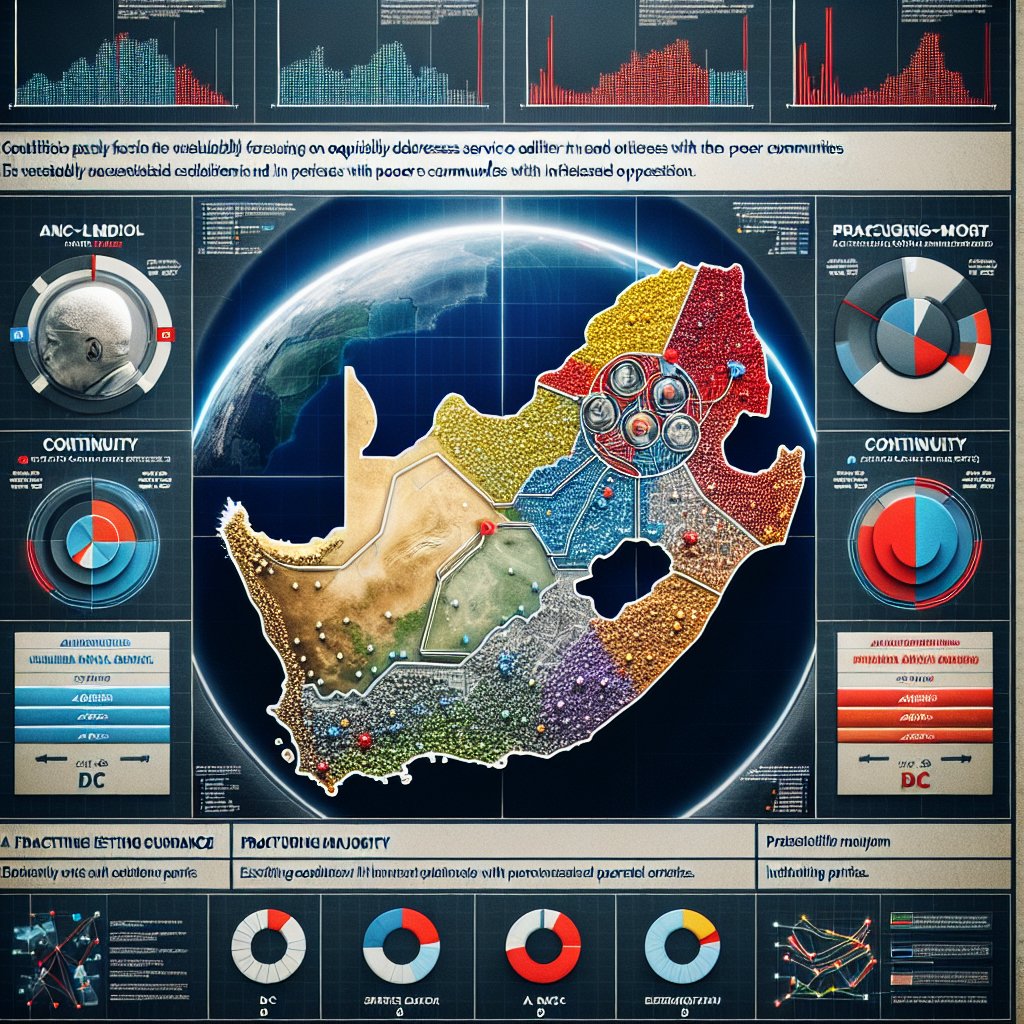Image created by AI
The Pivotal Race: Future Political Landscapes of the Western Cape in 2024
The ticking clock towards South Africa’s 2024 provincial elections builds anticipation, leaving experts and constituents considering the gravity of their choices at the polls. The Western Cape, a region with its own unique political climate, captures national attention as four distinct scenarios forecast a range of outcomes that could drastically alter its political terrain.
Currently, the Democratic Alliance (DA) dominates the region with a solid majority claimed in 2019. However, prevailing sentiments suggest the 2024 election is anything but settled. Here's a closer look at the prospects:
**Scenario 1:** An ANC Ascension
Reflecting the DA's most significant drop and the ANC's reciprocal gain, this scenario could usher in an ANC-led coalition that would tip the scales towards a focus on equitably addressing service delivery in poorer communities and bolstering relations with the national government. This rearrangement promises potential conflicts due to the inevitable ideological clashes between two near-equally matched coalitions.
**Scenario 2:** A DA Coalition Tightrope
Should the DA dip below the halfway mark, paired with an ANC upsurge and burgeoning smaller parties, a DA-led coalition could cling to control. This delicate balance would leave the DA vulnerable to opposition tactics and vote swinging, turning smaller parties into influentials in the legislative process.
**Scenario 3:** Continuity with Contention
Mirroring 2019's results, the DA could maintain its position but not without vehement opposition. This outcome suggests a governance model plagued with political friction as opposing parties intensify their challenges to the status quo.
**Scenario 4:** The Fractured Majority
Based on a CSN poll, this outcome shows the DA's grasp slackening while the ANC retains its base, and peer parties like the EFF potentially doubling influence. This scenario might leave the DA in a vulnerable spot, compelling it into unexpected alliances.
Yet, caveats surround Scenario 4; trends suggest discrepancies in the EFF's expected rise and the DA's voter base staunchness. Additionally, questions hover over CSN's projection methodologies, raising skepticism about the 82% turnout prediction and potential sampling errors suggesting broader margins of uncertainties.
A deep read into these scenarios underscores the weight of an election that might pivot the Western Cape on a pendulum of change. Voter turnout, particularly within the youth demographic, stands out as a pivotal factor, where a marked increase could fortify the ANC and EFF.
This nascent democracy's vibrancy and dynamism also encounter international affairs' influence, with the DA's stance on Gaza and Palestine potentially straining relations with substantial voter segments.
The scenarios ignite a call to awareness. Voters' choices resonate beyond mere ballot boxes – they sculpt governance, influence policies, and reverberate through communities. With the DA's majority on treacherous terrain, 2024 could mark a watershed moment for the Western Cape, steering it onto a path of reinvention or reaffirming its current course.
Experts lean towards Scenario 2, where a coalition may become the new normal for the DA's provincial reign. But far more crucial is the aftermath—how will the elected manifest their promises through services delivery to the Western Cape populace?
As the 2024 elections approach, watchful eyes will remain fixed on the Western Cape, waiting as new chapters of its political journey unfold.










